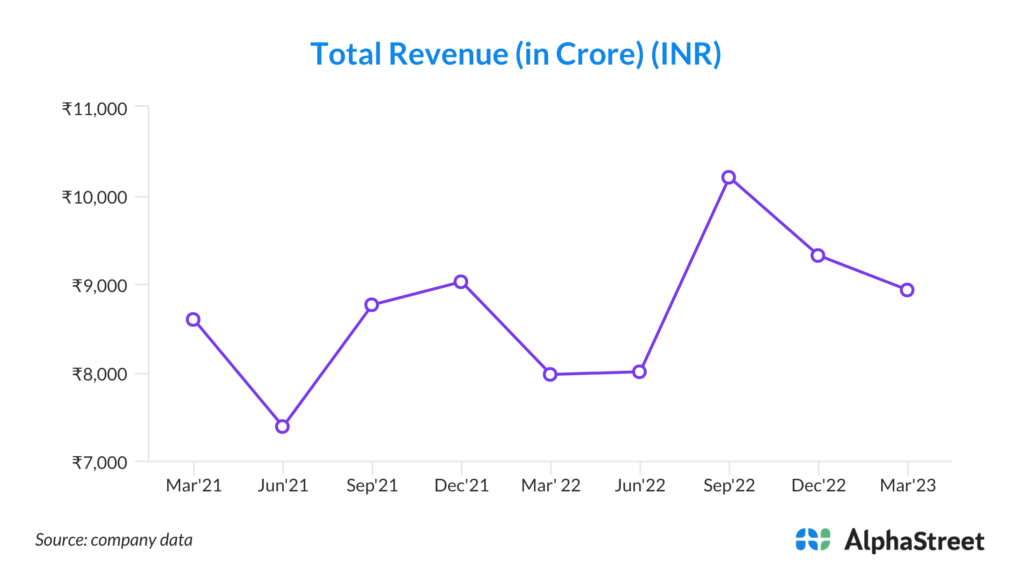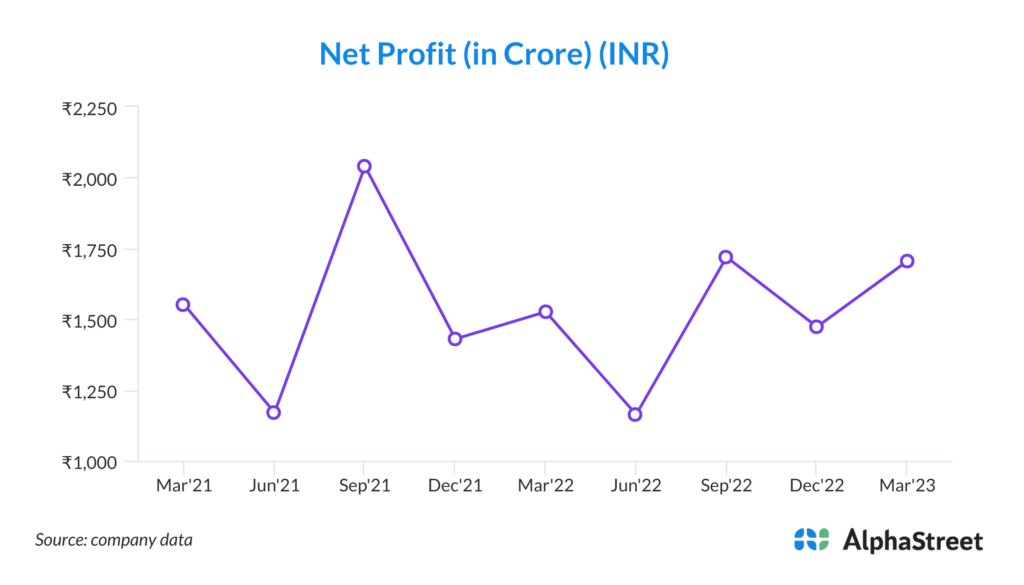Stock Data:
| Ticker | NSE: BAJAJ-AUTO |
| Exchange | NSE |
| Industry | AUTOMOBILES & AUTO COMPONENTS |
Price Performance:
| Last 5 Days | +0.20% |
| YTD | +36.57% |
| Last 12 Months | +26.43% |
Company Description:
Bajaj Auto is a leading Indian automobile manufacturer known for its innovative and reliable two-wheeler and three-wheeler vehicles. With a rich legacy spanning over seven decades, Bajaj Auto has established itself as a symbol of trust and quality in the industry. The company’s diverse product portfolio includes motorcycles, scooters, and commercial vehicles, catering to a wide range of consumer needs. Bajaj Auto has also introduced electric vehicles to promote eco-friendly transportation solutions.

Critical Success Factors:
1. Product Innovation and Diversification: Bajaj Auto has shown a commitment to innovation and diversification by venturing into the electric three-wheeler business. They have recognized the need to improve their three-wheelers and have planned a phased launch followed by scaling up in specific markets. This demonstrates their ability to adapt to changing market trends and expand their product portfolio.
2. Strategic Market Expansion: The company has identified markets with no permits for internal combustion engine (ICE) three-wheelers, particularly in the North and East regions. By focusing on these markets, they are strategically positioning themselves to capture untapped opportunities and gain a competitive advantage in areas where demand for electric vehicles is likely to be higher.
3. Customer-centric Approach: The company’s emphasis on customer satisfaction is evident from their plan to closely observe the limited launch of electric three-wheelers, resolve any issues, and ensure customer happiness before scaling up. This customer-centric approach enhances their reputation and builds trust among consumers.
4. Understanding Economic Dynamics: Bajaj Auto has a deep understanding of the economic dynamics and the distribution of recovery and progress in different consumer segments. They recognize the higher demand for 125 cc and above segments among the slightly higher-salaried consuming classes. This knowledge allows them to align their product offerings and marketing strategies accordingly, thereby maximizing their sales potential.
5. Strong Financial Position: Bajaj Auto’s financial strength is indicated by their ability to cover two-thirds of the cost increase resulting from factors like inflation and OBD 2A compliance impact through pricing adjustments. Their ability to manage cost fluctuations and maintain a favorable operating cost compared to ICE scooters demonstrates their financial stability and resilience.
6. Government Relations and Compliance: Bajaj Auto maintains a positive relationship with the government and operates within the regulatory framework. They have not faced any show cause or obstruction from the government, indicating their commitment to following the rules and regulations. This strengthens their credibility and reduces potential risks associated with government policies and subsidies.

Key Challenges:
1. Market Volatility and Economic Recovery: Bajaj Auto’s performance is heavily influenced by the economic recovery and GDP growth rate. The company acknowledges that the distribution of economic progress is lopsided, with a focus on higher-salaried consuming classes. A potential risk is the uncertainty of market volatility and economic recovery, which may impact consumer demand for their products, particularly in the sub-100 cc segment.
2. Disruption in FAME Subsidy and Government Relations: Bajaj Auto relies on government subsidies such as FAME (Faster Adoption and Manufacturing of Electric Vehicles) to support their electric vehicle initiatives. The risk lies in potential disruptions to the subsidy program, which could impact the company’s financials and competitiveness. Additionally, any strain in government relations or new requirements imposed on the industry could present challenges for the company.
3. Cannibalization Risk and Product Portfolio Management: As Bajaj Auto expands into the electric vehicle space, there is a concern of cannibalization among their own product offerings. Balancing the demand for electric two-wheelers and three-wheelers without significantly cannibalizing their existing market share can be challenging. Effective product portfolio management and market segmentation will be crucial to mitigate this risk.
4. Technological Advancements and Competition: The automotive industry is witnessing rapid technological advancements, especially in the electric vehicle segment. Bajaj Auto Ltd may face intense competition from established players and new entrants that offer technologically superior electric vehicles. Staying ahead of the competition by continuously innovating and adapting to evolving consumer preferences will be essential.
5. Supply Chain Disruptions and Commodity Price Volatility: Bajaj Auto’s operations are vulnerable to supply chain disruptions and commodity price fluctuations, particularly in the metals complex. Any disruptions or significant price increases in raw materials could impact their manufacturing costs and profit margins. The company will need to effectively manage their supply chain and explore strategies to mitigate the impact of commodity price volatility.
6. Customer Adoption and Perception: The success of Bajaj Auto’s electric vehicle offerings relies on customer adoption and perception. The initial high upfront payment for electric vehicles may deter some customers, leading to slower adoption rates. Building consumer awareness, addressing concerns about range anxiety, and establishing a positive perception of electric vehicles will be critical to overcoming this risk.
